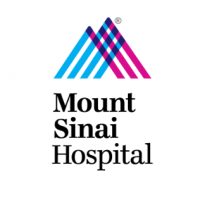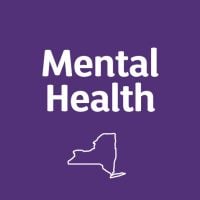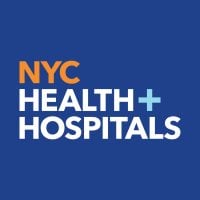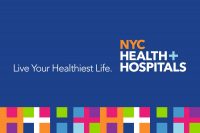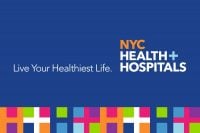Brooklyn Sober Living
Drug Rehab Center in Brooklyn, New York
Brooklyn Sober Living provides addiction treatment services and aftercare support, including drug rehab and sober-living/halfway houses, with friendly staff to assist individuals in their journey to recovery.
Multiple patients have reported Brooklyn Sober Living as permanently closed.
Research other rehabs in Brooklyn, New York, or get help finding an open facility.
About Brooklyn Sober Living in New York
Brooklyn Sober Living in Brooklyn, New York is an addiction treatment facility offering a comprehensive range of services to individuals struggling with alcoholism, opioid addiction, substance abuse, and drug addiction. It provides both inpatient and outpatient programs, tailored to meet the needs of each person. As part of its treatment plan, Brooklyn Sober Living offers drug rehab, aftercare support, sober-living and half-way housing as well as residential levels of care.
Brooklyn Sober Living provides wraparound services to individuals in need, from alcohol and substance abuse counseling to medical and psychiatric services. It also offers specialized interventions to help individuals cope with the mental, emotional, and physical effects of substance abuse. These services are tailored to each individual's needs and level of commitment, and are proven to be effective in helping people lead healthier, drug-free lives. Brooklyn Sober Living also works to empower the community to create an awareness and acceptance of addiction as a treatable disease.
Genders
Ages
Modality
Additional
Conditions and Issues Treated
It’s not easy getting sober on one’s own, or even going to rehab and escaping the grasp of addiction by oneself. Substance abuse treatment gives addicts a place to stay sober while learning what it takes to quit for good. They will learn from others about what works and what doesn’t work with remaining drug-free.
Treatment centers such as Brooklyn Sober Living focus on the needs of individual addicts to heal them. There is a combination of physical and mental therapies that treat the root cause of the addiction, whether it be family problems, stress, or past traumatic events.
The final benefit of substance abuse treatment is introducing new people who can help in your recovery after you leave Brooklyn Sober Living. Through group therapy sessions with other addicts and attending support meetings once a day, a person will learn how to interact with others and cope with cravings. This is a chance for you to rebuild your social circle healthily after you leave treatment.
Opioid addiction starts when a person becomes addicted to legal or illegal opioids. The addiction can happen quickly, in just a matter of days. Opioid withdrawal can be extremely uncomfortable and lead the user to continue to use even if they want to quit. Stopping using an opioid requires medical observation. Sometimes inpatient treatment with a medically supervised detox is necessary for managing the withdrawal process while learning lasting tools for maintaining recovery. Medications may be used in some cases of opioid addiction.
Opioid addiction is one of New York‘s most prominent forms of addiction. It’s treated by detoxifying the body so that the chemicals from the medications no longer impact them and by therapies to correct behavior and target the root of the problem.
Levels of Care Offered
This center offers a variety of custom treatment tailored to individual recovery. Currently available are Aftercare Support, Drug Rehab, Residential, Sober-Living / Half-Way, with additional therapies available as listed below.
Sober living homes (abbreviated SLHs or sometimes sober houses) are temporary housing for recovering addicts. The typical SLH functions as a halfway house, providing a stable living environment for addicts in recovery. While at an SLH, residents typically meet with various therapists on site and attend regular 12-step meetings as well as other recovery group meetings.
Residential treatment programs are those that offer housing and meals in addition to substance abuse treatment. Rehab facilities that offer residential treatment allow patients to focus solely on recovery, in an environment totally separate from their lives. Some rehab centers specialize in short-term residential treatment (a few days to a week or two), while others solely provide treatment on a long-term basis (several weeks to months). Some offer both, and tailor treatment to the patient’s individual requirements.
Aftercare support should take place after outpatient treatment has ended. There are a few different types of aftercare support that patients can seek. These include 12 Step, Self-help groups (AA, NA), Therapeutic communities, Long-term, structured sober living arrangements, and Halfway houses (residential treatment centers).
Therapies & Programs
Individual therapy involves one-on-one sessions between the patient and therapist. It provides patients with a safe environment to openly discuss personal and sensitive issues with the therapist. They find the therapist as someone they can trust. Individual therapy aims to identify the core issues that would have led the patient to substance abuse and address them effectively. The therapist can develop patient-specific customized solutions through individual therapy, which aids speedier recovery.
Couples therapy works with clients and significant others in a professional capacity to improve relationship dynamics. This can be helpful for addicts who are trying to marry the idea of recovery into their work, family, social lives – any aspect that has to do with relationships.
Through counseling sessions, addicts will have an opportunity to talk about their addiction with professional partners. These partners can offer feedback and advice on how to get sober while keeping healthy relationships intact. A good couples therapist will help addicts understand their part in an unhealthy relationship dynamic or find ways to deal with anger or resentment from significant others outside of the home.
Family therapy is a group problem-solving that aims to improve communication and relationships between the addict, their family, and sometimes friends. The main goal of family therapy for drug addiction is to create an environment where communication can occur without judgment, hostility, or blame. The therapist is with the family as they learn to communicate differently, especially with the addict when s/he is using. The family can learn to reduce their enabling behavior or rally together and support each other during tough times.
An addict’s family can play a vital part in helping them to avoid relapse because they can spot the warning signs and help them get back on track before it becomes too much of a problem. Family therapy is one of the most effective ways to help addicts stay on the path to long-term sobriety. When a drug addict decides that they want to try and get sober, it takes the support of every person they love to succeed. It can be incredibly difficult for loved ones to watch an addict go through the pain and suffering of withdrawal, but by being there with them and supporting them, they can help to make sure that the addiction never returns.
Groups typically involve meetings with other recovering addicts who can relate to one another’s experiences. They might meet in person or online and typically focus on the process of staying sober rather than overcoming a specific addiction.
In these groups managed by Brooklyn Sober Living, addicts can build a sense of community and develop strong emotional connections with others who understand what they are going through. These beneficial relationships can help addicts overcome their cravings and prevent relapse at any point during the recovery process.
Since addiction is a chronic physical and mental illness, addicts need to learn as many life skills as possible. Many drug treatment centers offer life skills activities as part of their addiction recovery programs. Examples include cooking classes, employment training, resume writing seminars, parenting classes, and computer training. Life skills activities help addicts find employment, take care of their families, and give back to the community.
Payment Options Accepted
For specific insurance or payment methods please contact us.
Additional Details
Specifics, location, and helpful extra information.
Brooklyn, New York 11211 Phone Number(718) 963-2039 Meta DetailsUpdated November 25, 2023
Staff Verified
Brooklyn Sober Living Patient Reviews
There are no reviews yet. Be the first one to write one.
Brooklyn, New York Addiction Information
More than 2 million New Yorkers are currently suffering from some type of substance abuse and many of those are minors. Alcohol abuse, in particular, is prevalent among those underage. As a result of the high prices and regulation of prescription drugs, many New Yorkers turn to heroin instead. This has led to a serious heroin epidemic in the state.
Brooklyn has a hospitalization rate for drug overdoses nearly double the New York City average. In 2012, there were 1,814 admissions to drug treatment centers in Brooklyn, which accounted for 6.8% of all admissions in NYC. Over 3 million emergency room visits were related to drug misuse in 2016. Some of the most common treatments include inpatient rehabilitation, outpatient rehabilitation, 12-step programs, and detoxification.
Treatment in Nearby Cities
- Seaford, NY (25.1 mi.)
- Granville, NY (189.6 mi.)
- Westhampton Beach, NY (69.2 mi.)
- Mastic, NY ( mi.)
- Rensselaer, NY (133.7 mi.)
Centers near Brooklyn Sober Living
The facility name, logo and brand are the property and registered trademarks of Brooklyn Sober Living, and are being used for identification and informational purposes only. Use of these names, logos and brands shall not imply endorsement. RehabNow.org is not affiliated with or sponsored by Brooklyn Sober Living.

